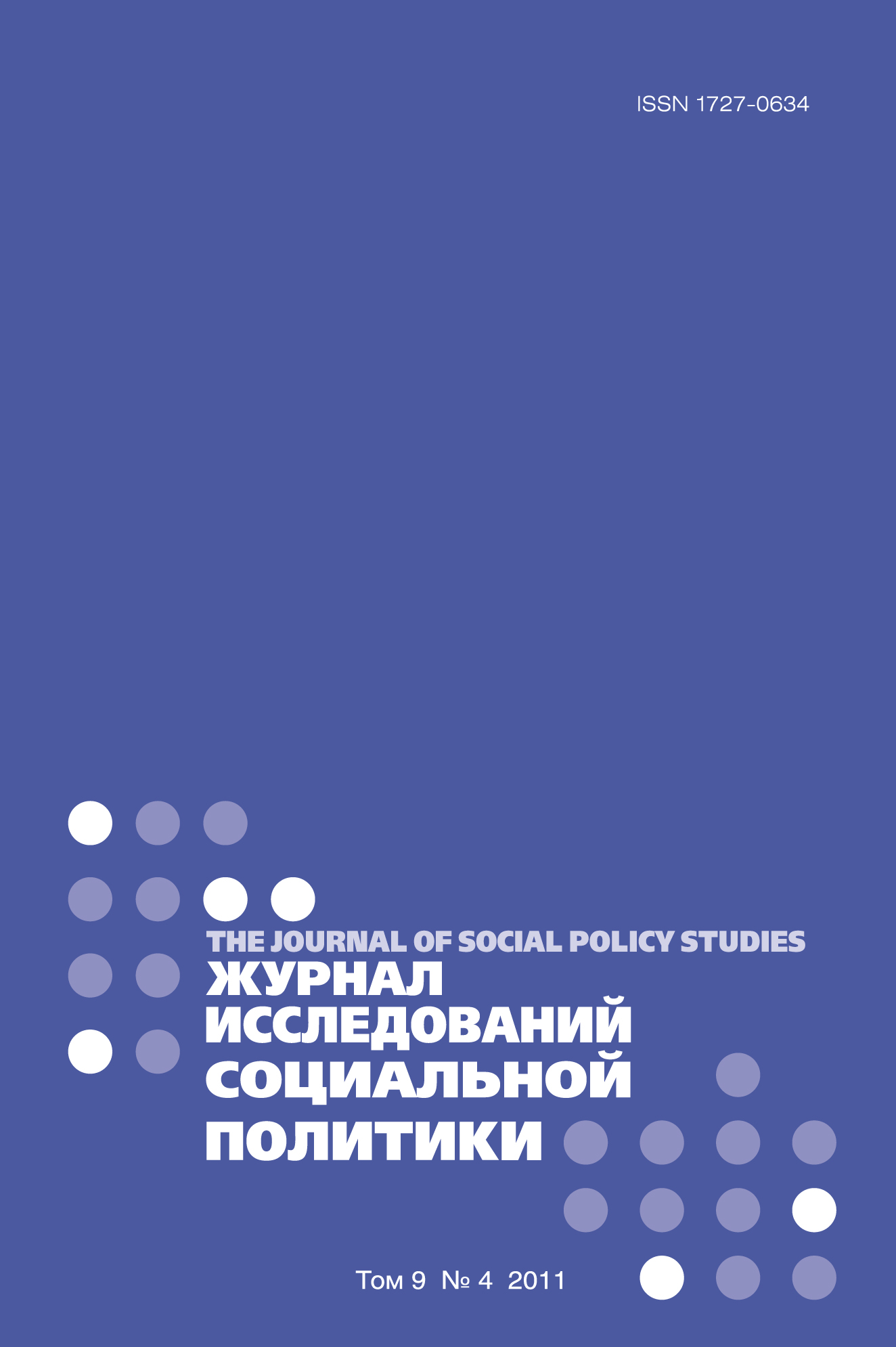Childcare services: scope and factors of consumption by Russian families
Abstract
The quality and availability of pre-school childcare and educational services has been shown to have an impact on individuals’ future socio-economic outcomes. However, existing structural, financial and time barriers lead to inequalities in the uptake of childcare services. Based on an analysis of data from Russian federal statistics, this article presents an analysis of childcare services from the point of view of their uptake by Russian households. It looks firstly at understandings and classifications of child services; secondly, it examines government statistics relating to general trends in pre-school education; thirdly, it analyses the scale of uptake of institutional childcare. Finally, the author examines factors affecting uptake of institutional care by households. The results of the analysis show a high and growing demand for childcare services – both institutional and familial – in Russian society, and suggests that policy changes are needed to address a growing deficit in this sector.
The analysis identified the following basic characteristics affecting the demand for childcare places amongst Russian households: the number and age of the family’s children; the level of education and occupation of the mother; the family structure (e.g. one-parent family or otherwise); the socio-economic status of the household; the availability of access to nurseries and pre-schools in a particular region; the size of the household’s informal networks (i.e. friends and family providing childcare support). Quality of care as well as the quantity of places available is also shown to be an issue affecting the uptake of services. Although informal family networks compensate for the deficit of institutional care facilities for children, help from relatives is not able to fully replace the early socialisation of children available through institutionalised childcare services. The article concludes that pre-school childcare is a policy area with significance in other spheres of society, suggesting that better funding for pre-school services is an investment in human capital which would benefit the future labour market, as well as addressing social inequality from an early stage in life.















